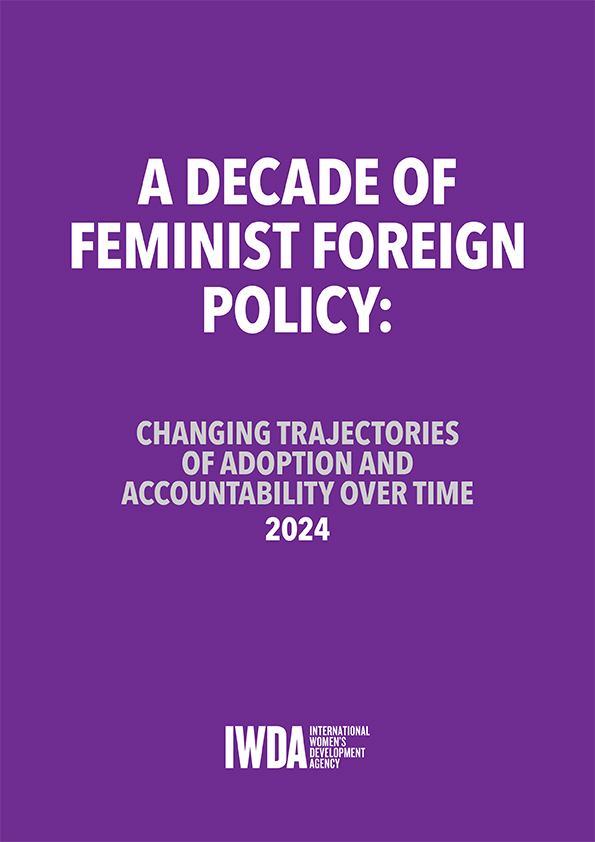A Decade of Feminist Foreign Policy: Changing trajectories of adoption and accountability over time (2024)
Ten years ago, Sweden announced the world’s first Feminist Foreign Policy (FFP. Since then, a further 14 governments have also committed to this approach which promises transformational change in how we think about foreign policy.
In 2021, IWDA published qualitative research exploring how 4 early feminist foreign and international assistance policies declared by Sweden, Canada, Mexico and France, had come about. In response to the findings of this research, particularly regarding the role of civil society in creating an enabling environment for feminist foreign policy, IWDA established the Australian Feminist Foreign Policy Coalition (AFFPC).
Over the last three years since finalising that research, the FFP landscape has changed dramatically. Some countries have dropped their commitments, nearly half of all FFP commitments have now been made by Majority World countries and recent geopolitical events, including the COVID-19 pandemic, Russia’s invasion of Ukraine and Israel’s war on Gaza, are informing critical debates, questions and tensions about the scope, shape and implementation of FFP.
New Research
The purpose of this new research project was to update the empirical evidence about the key factors that have influenced FFP trajectories, and whether and how these factors have changed since we last examined this issue in 2020–2021.
Based on analysis of 24 interviews with key stakeholders in civil society, academia and government across 14 countries, our research findings relate to four key stages of FFP trajectory:
- Getting to declaration
- From declaration to development
- Institutionalisation
- Future opportunities and pitfalls
Research Findings
Our findings confirm that recent FFP trajectories have been mostly driven by new factors – for better or worse. The geopolitical world is rapidly changing, and the sense amongst FFP stakeholders, including those who participated in the research, is that the feminist foreign policy movement is at a tipping point.
The findings, implications and considerations of this report can help strengthen discourse and action on FFP to connect more distinctly with feminist underpinnings and rebalance future trajectories towards the transformative.
